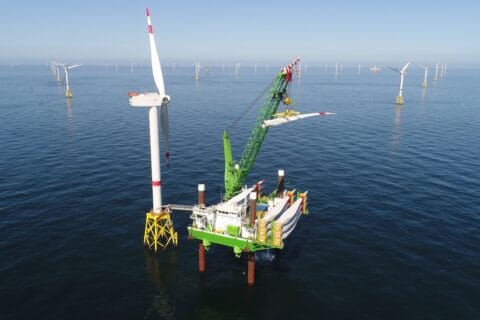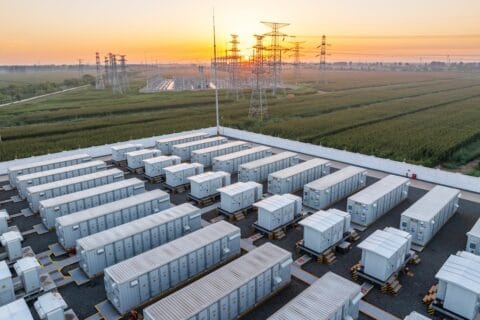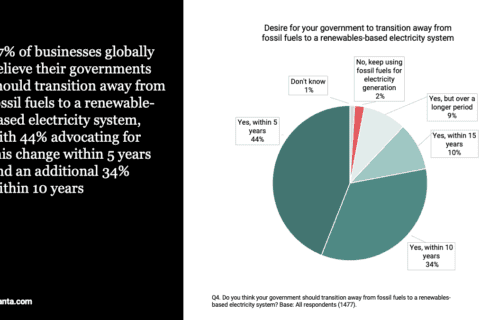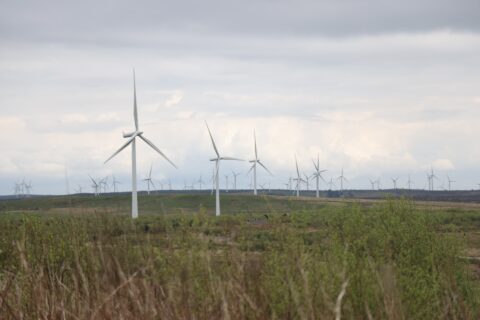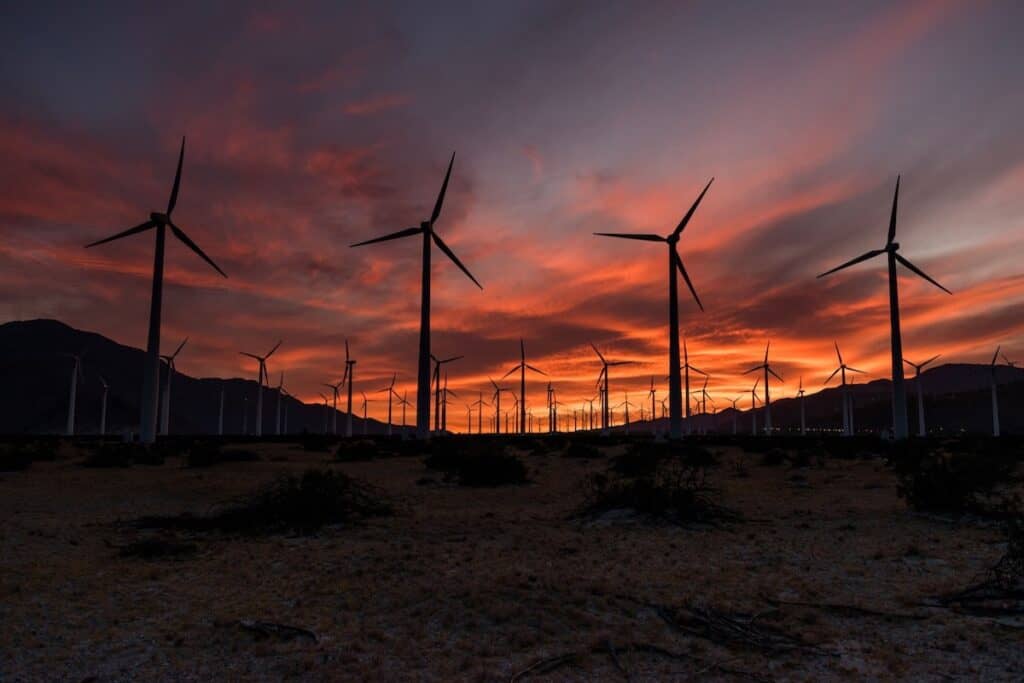
Despite an unprecedented surge in renewable energy deployment last year, investment still falls well short of targets to triple capacity by 2030, as report reveals current plans will not deliver the growth required.
The official tracking report of the landmark energy goals established by the UAE Consensus at COP28 in Dubai confirms there are significant gaps in progress towards tripling renewables and doubling energy efficiency by 2030. It recommends priority actions and a dramatic uptick in investment.
Overall, annual investment in renewable capacity would have to triple, from a new record high of $570bn in 2023 to $1.5tr every year between 2024 and 2030. The targets of tripling renewable power capacity and doubling energy efficiency by 2030 are critical enablers for keeping the 1.5°C goal within reach.
Over 7 terawatts more in under 6 years
The report — Delivering on the UAE Consensus: Tracking progress toward tripling renewable energy capacity and doubling energy efficiency by 2030 — was released at Pre-COP in Azerbaijan by the International Renewable Energy Agency (IRENA), in partnership with COP28, COP29, COP30 host Brazil and the Global Renewables Alliance. It provides timely and accurate inputs to future COP decisions including COP29 in Baku.
To meet the global goals, the report reveals that installed renewable capacity would have to grow from 3.9 terawatts (TW) today to 11.2TW by 2030, requiring an additional 7.3TW in less than six years. However, current national plans are projected to leave a global collective gap of 3.8TW by 2030, falling 34% short.
In addition, the annual energy intensity improvement rate must increase from 2% in 2022 to 4% on yearly base up to 2030. This will require faster progress in efficiency measures and electrification across multiple sectors, including transport, building and industry.
Third round of NDCs must close the gap
These shortfalls highlight the inadequacy of existing policies and plans to limit global temperature rise to 1.5°C, underscoring the need for urgent policy interventions and massive investment. The third round of Nationally Determined Contributions (NDCs) under the Paris Agreement in 2025 must close the gap.
Speaking at the report launch, IRENA Director-General Francesco La Camera issued a warning:
“Today, we’re raising the alarm. COP28 goals of tripling renewables and doubling energy efficiency are key enablers for global efforts to keep 1.5°C within reach but we risk missing them. The next NDCs must bring the world back on track.”
COP28 President Sultan Al Jaber issued a call to collectively move faster on energy transition:
“The opportunity is there but we need more nations to step up to the plate by including specific renewable energy and infrastructure targets in their upcoming NDCs, incentivising private investment, and making it easier to develop and deploy projects. We need to think bigger, act bolder.“
There is a need to take tangible steps, added Mukhtar Babayev, COP29 President-Designate:
“Central to our plan to enhance ambition and enable action are Presidency-led initiatives that reflect the outlook and opportunities in this report. These include the creation of green energy zones and green energy corridors, strengthening electric grids, increasing energy storage capacity, and development of clean hydrogen.“
These thoughts were amplified by the Energy Minister of Azerbaijan, Parviz Shahbazov Ogtay:
“The report provides critical signals that we need to increase our ambitions and actions in the fight against climate change and the energy transition. In this regard, COP29 will build on the COP28 agreement by advancing initiatives and priorities that accelerate development and remove barriers.”
The NDCs review can be a reboot, concluded Bruce Douglas, CEO of the Global Renewables Alliance:
“While momentum behind renewable energy is unprecedented, it’s clear we are still falling short of where we need to be by 2030. Industry has proven time and again we can deliver, even surpass, expectations when the right frameworks and policies are in place. Now is the time for governments to set ambitious, specific and actionable plans.
“Our message is clear: Now Deliver Change.”
New Collective Quantified Goal on finance
The progress report concludes that to deliver the UAE Consensus goals on the ground, significant advances will be required across key enablers of the energy transition, namely: infrastructure and system operation, policy and regulation, supply chains, skills and capacities, finance, and international collaboration.
Furthermore, whilst recent global growth might have broken records, progress remains inequitable.
At present, the reality is that emerging and developing economies continue to face financing gaps that significantly undermine access to capital-intensive energy transition technologies.
Renewable power investments in Africa, for instance, declined by 47% between 2022 and 2023. Sub-Saharan Africa received 40 times less than the world average per capita transition-related investment.
Reducing this gap involves securing financing at better terms by mitigating country risks and increasing the availability of concessional finance, mostly from multilateral and bilateral development funds and financing institutions and philanthropies. International collaboration will be crucial for a more equitable world.
Agreement on a robust New Collective Quantified Goal (NCQG) on climate finance at COP29 will be vital for enhancing support as well as inspiring ambitious targets in the NDC 3.0 submission process in 2025.
Cooperation key to fight climate change
The International Renewable Energy Agency (IRENA) is the lead intergovernmental agency for the renewables-based energy transition in pursuit of a systemic change across the energy sectors.
A global energy agency comprised of 169 countries and the EU, with 14 additional countries in accession, IRENA provides knowledge, technical assistance and capacity building, project and investment facilitation.
The Agency enables international cooperation and partnerships to fight climate change and promote sustainable development, energy access, energy security and resilient economies and societies.
Further Reading:
- Download and read the full report from IRENA into Delivering on the UAE Consensus;
- More on Nationally Determined Contributions (NDCs); and the New Collective Quantified Goal (NCQG);
- More from the Pre-COP in Azerbaijan; ahead of COP29 in Baku;
- More about the International Renewable Energy Agency (IRENA), in general;
- More about the Global Renewables Alliance;
- Also on SustMeme, Record, but inequitable, growth in renewables;
- Also on SustMeme, Time to repower and reprocess old wind turbines;
- Also on SustMeme, Energy transition to add 40 million jobs by 2050;
- Also on SustMeme, Energy transition drives boom in biofuel production;
- Also on SustMeme, Energy transition investment hits $500 billion for first time;
- Also on SustMeme, Solar and wind now cheapest for 2 in 3 people worldwide;
- Also on SustMeme, Is the global energy transition starting to stall?
Check out the full archive of stories on the SustMeme Climate & Energy Channel, now available to Sponsor.

